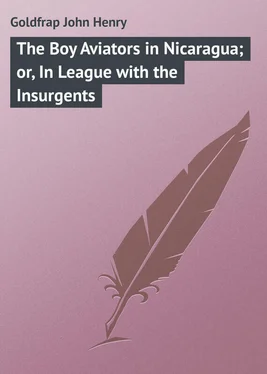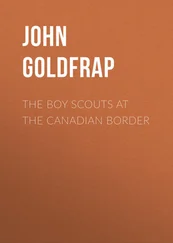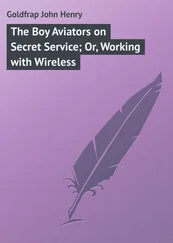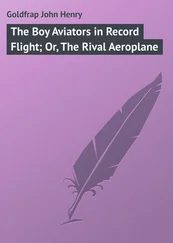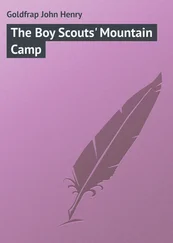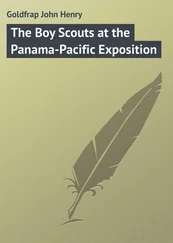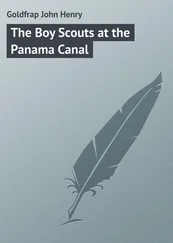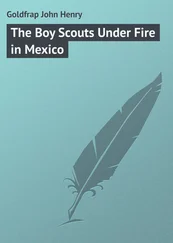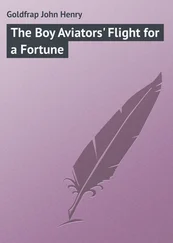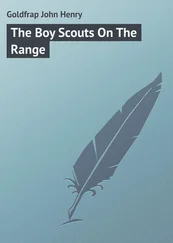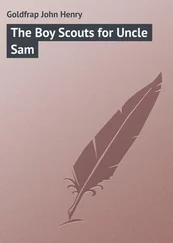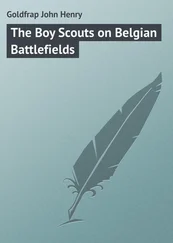John Goldfrap - The Boy Aviators in Nicaragua; or, In League with the Insurgents
Здесь есть возможность читать онлайн «John Goldfrap - The Boy Aviators in Nicaragua; or, In League with the Insurgents» — ознакомительный отрывок электронной книги совершенно бесплатно, а после прочтения отрывка купить полную версию. В некоторых случаях можно слушать аудио, скачать через торрент в формате fb2 и присутствует краткое содержание. ISBN: , Жанр: foreign_language, foreign_prose, на английском языке. Описание произведения, (предисловие) а так же отзывы посетителей доступны на портале библиотеки ЛибКат.
- Название:The Boy Aviators in Nicaragua; or, In League with the Insurgents
- Автор:
- Жанр:
- Год:неизвестен
- ISBN:http://www.gutenberg.org/ebooks/49734
- Рейтинг книги:5 / 5. Голосов: 1
-
Избранное:Добавить в избранное
- Отзывы:
-
Ваша оценка:
- 100
- 1
- 2
- 3
- 4
- 5
The Boy Aviators in Nicaragua; or, In League with the Insurgents: краткое содержание, описание и аннотация
Предлагаем к чтению аннотацию, описание, краткое содержание или предисловие (зависит от того, что написал сам автор книги «The Boy Aviators in Nicaragua; or, In League with the Insurgents»). Если вы не нашли необходимую информацию о книге — напишите в комментариях, мы постараемся отыскать её.
The Boy Aviators in Nicaragua; or, In League with the Insurgents — читать онлайн ознакомительный отрывок
Ниже представлен текст книги, разбитый по страницам. Система сохранения места последней прочитанной страницы, позволяет с удобством читать онлайн бесплатно книгу «The Boy Aviators in Nicaragua; or, In League with the Insurgents», без необходимости каждый раз заново искать на чём Вы остановились. Поставьте закладку, и сможете в любой момент перейти на страницу, на которой закончили чтение.
Интервал:
Закладка:
Wilbur Lawton
The Boy Aviators in Nicaragua / or In League with the Insurgents
CHAPTER I.
THE BOYS START FOR THE TROPICS
It was a bitter evening in late December. Up and down the East River tugs nosed their way through the winter twilight’s gloom, shouldering aside as they snorted along big drifting cakes of ice.
At her pier, a short distance below the Brooklyn Bridge, the steamer Aztec , of the Central American Trading Company’s line had just blown a long, ear-piercing blast – the signal that in half-an-hour she would cast off her lines. In the shrill summons there was a note of impatience; as if the ship was herself as eager as her fortunate passengers to be off for the regions of sunshine and out of the misery of the New York winter.
The Aztec had been due to sail at noon that day, as the Blue Peter floating at her mainmast head had signified. Here it was, however, a good hour since the towering mass of skyscrapers on the opposite side of the river had blossomed, as if by magic, into a jewel-spangled mountain of light and her steam winches were still clanking and the ’longshore men, under the direction of the screech of the boss stevedore’s whistle, as hard at work as ever. No wonder her passengers fretted at the delay.
Not the least eager among them to see the ship’s restraining lines cast off were Frank and Harry Chester, known to the public, through the somewhat hysterical pæans of the Daily Press and the rather more dignified, but not less enthusiastic articles of the technical and scientific reviews, as the Boy Aviators. It was an hour since they had bade their mother and an enthusiastic delegation of boy and girl friends good-bye.
Side by side the youths paced the deck muffled in huge overcoats and surveying anxiously, as from time to time they approached the forward end of the promenade deck, a lofty pile of boxes that contained the various sections of their aeroplane the Golden Eagle which had made the sensation of the year in aviation circles.
Ever since the Golden Eagle , a biplane of novel construction, had carried off from all competitors the $10,000 prize for a sustained flight offered by J. Henry Gage, the millionaire aeronaut at the White Plains Aerodrome, the boys had become as well-known figures in New York life as any of the air prize contestants during the Hudson-Fulton Exhibition. Frank, the eldest, was sixteen. A well-grown, clean-lived-looking boy with clear blue eyes and a fearless expression. His brother, a year younger, was as wholesome appearing and almost as tall, but he had a more rollicking cast in his face than his graver brother Frank, whose equal he was, however, in skill, coolness and daring in the trying environment of the treacherous currents of the upper air.
With the exception of a brief interval for lunch the two boys had amused themselves since noon by watching the, to them novel, scene of frantic activity on the wharf. The ships of the Central American Trading Co. had a reputation for getting away on time and the delay had grated on everybody’s nerves from the Aztec’s captain’s to the old wharfinger’s; in the case of the latter indeed, he had attempted to chastise, a short time before, an adventurous newsboy who had ventured on the pier to sell his afternoon papers. Frank had intervened for the ragged little scarecrow and the boys had purchased several copies of his wares. They had a startling interest for the boys which they had not suspected. In huge type it was announced in all, that the long threatened revolution in Nicaragua had at last broken out with a vengeance, and seemed likely to run like wildfire from one end of the turbulent republic to the other. Troops were in the field on both sides – so the despatch said – and the insurgents were loudly boasting of their determination to march on and capture Managua, the capital, and overthrow the government of President Zelaya. Practically every town in the country had been well posted with the manifesto of the reactionaries, and had taken the move as being one in the right direction.
In the news that the revolution, the storm clouds of which had long been ominously rumbling had actually broken out, the boys had an intense and vital interest. Their father’s banana plantation, one of the largest and best known in Central America, lay inland about twenty miles from Greytown, a seacoast town, on the San Juan River. The boys were on their way there after a long and trying season of flights and adulation to rest up and continue, in the quiet they had hoped to find there, a series of experiments in aviation which had already made them among the most famous graduates the Agassiz High School on Washington Heights had turned out in its years of existence. Already in their flights at White Plains, and later during the Hudson-Fulton celebration, the boys had earned, and earned well, laurels that many an older experimenter in aviation might have worn with content, but they were intent on yet further distinction. Already they had given several trials to a wireless telegraph appliance for attachment to aeroplanes and the Golden Eagle in some private flights had had this apparatus in use. The results had been encouraging in the extreme. With the use of a greater lifting surface the boys felt that they would be justified in adding to the weight the aeroplane could lift and that this weight would be in form of additional power batteries for the wireless outfit both had agreed. In the boxes piled on the foredeck they had indeed a supply of balloon silk, canvas, wire, spruce stretchers and aluminum frames which they intended to put into use as soon as they should reach Nicaragua in the furtherance of their experiments. The conquest of the air both in aviation and communication was the lofty goal the boys had set themselves.
“The revolution has really started at last, old boy – hurray!” shouted Harry, throwing his arm in boyish enthusiasm about his staid brother Frank, as both boys eagerly assimilated the news.
“I say, Frank,” he continued eagerly, “it’s always been our contention that an aeroplane capable of invariable command by its operator would be of immense value in warfare. What a chance to prove it! Three cheers for the Golden Eagle .” In his excitement Harry pulled his soft cap from his head and waved it enthusiastically.
Frank, however, seemed to view the situation more gravely than his light-hearted brother. As has been said, Frank, while but little older in point of years possessed a temperament diametrically opposed to the mercurial nature of his younger brother. He weighed things, and indeed in the construction of the Golden Eagle , while Harry had suggested all the brilliant imaginative points, it had been the solid practical Frank who had really figured out the abstruse details of the wonder-ship’s structure.
Despite this difference of temperament – in fact Harry often said, “If Frank wasn’t so clever and I wasn’t so optimistic we’d never have got anywhere,” – in spite of this contrast between the two there was a deep undercurrent of brotherly love and both possessed to the highest degree the manly courage and grit which had tided them over many a discouraging moment. Nor in the full tide of their success, when people turned on the street to point them out, were either of the boys at all above recognizing their old playfellows and schoolmates as has been known to be the case, it is said, with other successful boys – and men.
“I don’t know, Harry,” replied Frank at length to his brother’s enthusiastic reception of the news of the rebellion, “there are two sides to every question.”
“Yes, but Frank, think,” protested Harry, “we shall have a chance to see a real skirmish if only they keep at it long enough. Confound it though,” he added with an expression of keen regret, “the paper says it’s another ‘comic opera revolution.’”
Читать дальшеИнтервал:
Закладка:
Похожие книги на «The Boy Aviators in Nicaragua; or, In League with the Insurgents»
Представляем Вашему вниманию похожие книги на «The Boy Aviators in Nicaragua; or, In League with the Insurgents» списком для выбора. Мы отобрали схожую по названию и смыслу литературу в надежде предоставить читателям больше вариантов отыскать новые, интересные, ещё непрочитанные произведения.
Обсуждение, отзывы о книге «The Boy Aviators in Nicaragua; or, In League with the Insurgents» и просто собственные мнения читателей. Оставьте ваши комментарии, напишите, что Вы думаете о произведении, его смысле или главных героях. Укажите что конкретно понравилось, а что нет, и почему Вы так считаете.
